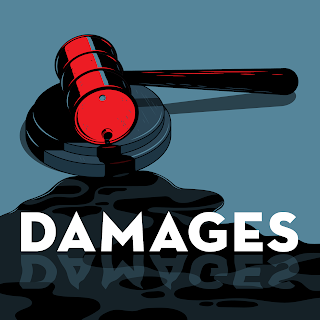Earlier this week, the island nation of Vanuatu moved a step closer in its efforts to litigate climate change before the United Nation's International Court of Justice, also known as The Hague. If successful - and there's a reasonable chance it will be - it could help shape international law to treat climate change as a human rights issue, and "ecocide" as a crime.
This week's episode of the new climate-law podcast Damages takes a deep look at the United Nations. Climate complaints to the UN Human Rights Commission are becoming more common, but does this Commission have any real power? What role does the UN play in International Courts, and how does it relate to its role in international negotiations? How did the UN's role in global climate litigation and legislation evolve, and what can it actually do to force climate action?
Damages is one of a triad of climate podcasts by climate journalist Amy Westervelt. The other two are Drilled and Hot Take.
Damages, Westervelt’s new podcast about climate lawsuits, digs into big legal ideas shaking up climate action in season two, from the new international crime of “ecocide” to the secret tribunals corporations use to try to block environmental laws.
Additional
topics explored in this season’s six episodes include: What can the
United Nations actually do to force climate action; the legal right to a
healthy environment; and why, outside the U.S., most climate cases
focus on holding governments accountable, while in America they mostly
go after private companies.
All three podcasts are available on all podcast platforms.
Listen to Damages here or on any podcast app.

Comments
Post a Comment
Thank You for your input and feedback. If you requested a response, we will do so as soon as possible.